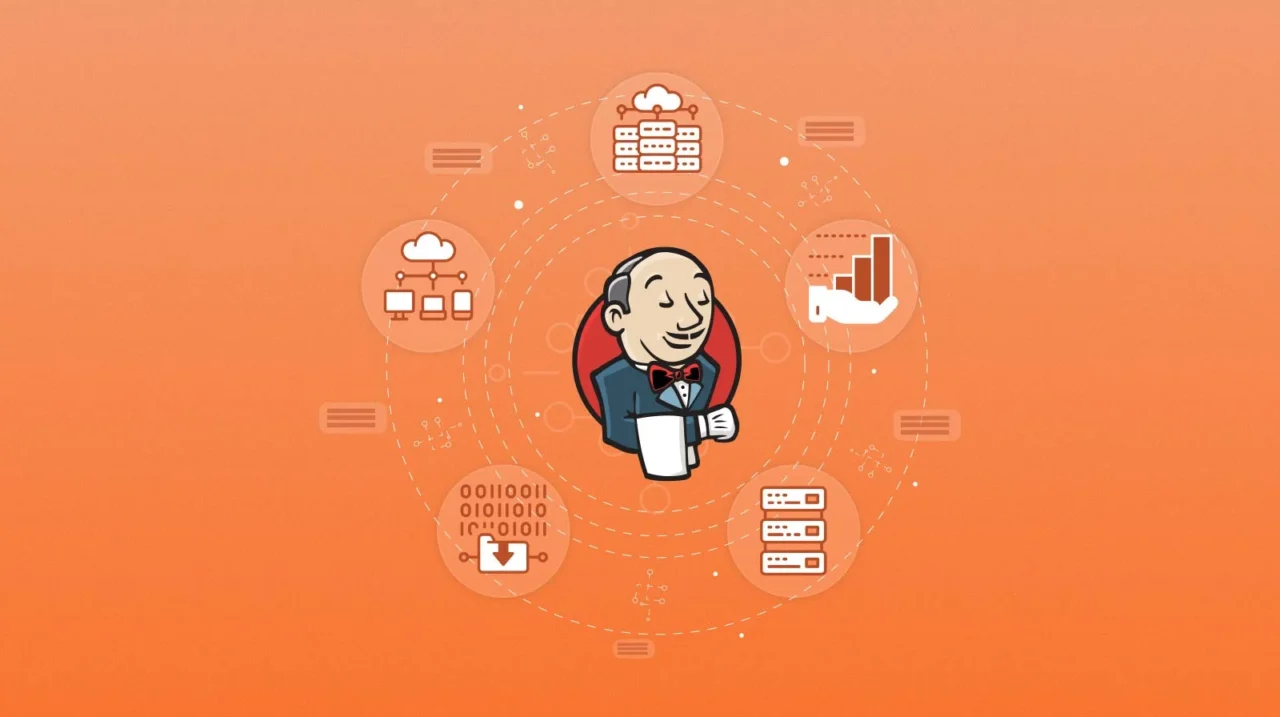Top Jenkins Interview Questions & Answers [UPDATED 2025]: Ace Your DevOps Interview


Supercharge Your Jenkins Interview Prep 🚀
Practice unlimited Jenkins and DevOps interviews for free with Huru.ai. Get instant AI feedback, real-time improvement tips, and master even the toughest technical rounds. Start your mock interview now →
Why Jenkins Interview Questions Matter in 2025
Jenkins remains the cornerstone of modern CI/CD pipelines, empowering organizations to automate and accelerate software delivery. As DevOps roles evolve, Jenkins interview questions have become more challenging, focusing on practical pipeline scripting, security, cloud integrations, and troubleshooting real-world deployments.
With hiring managers prioritizing hands-on expertise, scenario-based problem solving, and the ability to design, debug, and secure complex Jenkins pipelines, interview prep must go beyond memorizing theory. Whether you’re a seasoned DevOps engineer or an aspiring software developer, mastering these questions is critical for landing top-tier roles.
Below, we reveal the most relevant Jenkins interview questions for 2025, curated from actual interview experiences and verified by hiring managers through Huru.ai’s real-time feedback platform.

Breaking Down the Modern Jenkins Interview: What to Expect
- Pipeline Scripting Mastery: Hands-on questions in Declarative & Scripted pipelines, Groovy, and Jenkinsfile best practices.
- Cloud & Container Integration: Automating workflows with Docker, Kubernetes, AWS, Azure, and Google Cloud integrations.
- Security & Scaling: Securing Jenkins, managing agents, using credentials/secrets, and building resilient, high-availability pipelines.
- Troubleshooting & Debugging: Scenario-based questions to identify and solve build failures, optimize jobs, and mitigate downtime.
- DevOps Ecosystem: Integrating Jenkins with Git, Maven, Selenium, Slack, and more for end-to-end CI/CD automation.
Expect to be evaluated on both your coding skills and your ability to design real-world DevOps solutions.
💡 Key Takeaway
Top Jenkins interviews in 2025 require practical pipeline scripting, advanced cloud/container integration, and a solid grasp of real-world DevOps challenges. Prepare to code, troubleshoot, and architect solutions on-the-fly.
Jenkins Interview Questions & Answers for 2025: Core to Advanced
1. Jenkins Fundamentals
- Q: What is Jenkins? Why is it important in CI/CD?
A: Jenkins is an open-source automation server for building, testing, and deploying software. It’s vital for modern CI/CD as it enables fast, reliable software delivery, seamless integration with tools like Git, Docker, Kubernetes, and supports both manual and automated pipelines. - Q: How does Jenkins differ from other CI/CD tools?
A: Jenkins is highly extensible due to its vast plugin ecosystem, supports a wide range of integrations (cloud, containers), and allows both declarative and scripted pipeline authoring. Unlike some SaaS competitors, Jenkins can be hosted fully on-premises for sensitive workloads.
2. Jenkins Pipeline & Scripting
- Q: Explain Declarative vs. Scripted Pipeline. Give examples.
A: Declarative pipelines use a structured, simpler syntax and are recommended for most use-cases. Scripted pipelines leverage Groovy for more complex scenarios.Declarative Example: pipeline { agent any stages { stage('Build') { steps { sh 'make' } } } } Scripted Example: node { stage('Build') { sh 'make' } } - Q: How do you handle parameters and environment variables in a Jenkins pipeline?
A: Use theparametersblock for user-defined inputs and theenvironmentblock for setting global or stage-specific environment variables.pipeline { parameters { string(name: 'BRANCH', defaultValue: 'main') } environment { AWS_REGION = 'us-west-2' } stages { ... } } - Q: How do you implement parallel execution in Jenkins pipelines?
A: Use theparallelblock within a stage.stage('Test') { parallel { stage('Unit Tests') { steps { sh 'npm run test:unit' } } stage('Integration Tests') { steps { sh 'npm run test:integration' } } } }
3. Jenkins at Scale: Agents, Nodes, and Executors
- Q: What is a Jenkins agent? How do you manage nodes for high-availability?
A: An agent (or node) is any machine connected to Jenkins to run builds or jobs. High-availability setups leverage multiple agents, often with cloud auto-scaling, to distribute workloads. Configure viaManage Nodes and Cloudsin Jenkins settings. - Q: How do you secure connections between master and agents?
A: Use encrypted JNLP connections, SSH keys, and restrict agent permissions. Always update to the latest Jenkins LTS releases.
4. Cloud, Docker & Kubernetes Integrations
- Q: How do you integrate Jenkins with Docker and Kubernetes?
A: Use Jenkins plugins for Docker (Docker Pipeline, Docker Agent) and Kubernetes (Kubernetes plugin) to dynamically provision containers/pods as Jenkins agents. Jenkinsfiles can define container environments, enabling ephemeral and scalable build infrastructure. - Q: How can Jenkins deploy artifacts to AWS and Azure?
A: Integrate with AWS CodeDeploy, S3, or Azure Pipelines via plugins or CLI tools. You can use credentials and environment variables to automate deployments directly from Jenkins pipelines.
5. Credentials & Secret Management
- Q: Best practices for handling secrets in Jenkins pipelines?
A: Store secrets in Jenkins Credentials Manager. Reference secrets using credential bindings or plugins (e.g., HashiCorp Vault). Never hardcode secrets in pipelines or SCM repositories. - Q: How do you audit secret usage and prevent leaks?
A: Enable auditing plugins, restrict access to credentials, and use environment variable masking. Regularly rotate secrets and review credential usage.
6. Jenkins Plugins & Ecosystem
- Q: Which plugins are essential for modern Jenkins pipelines?
A: Key plugins include: Pipeline, Blue Ocean, Git, Credentials, Docker, Kubernetes, Email Extension, Slack Notification, and Job DSL. - Q: How do you troubleshoot plugin issues?
A: Check plugin compatibility with Jenkins core, review logs, use theSupport Coreplugin, and test plugins in isolated environments before production rollout.
7. CI/CD Pipeline Scenarios & Troubleshooting
- Q: How do you design a multi-branch pipeline that triggers only on feature branches?
A: Use themultibranch pipelineproject, configure branch filtering, and leverage SCM hooks (e.g., GitHub webhooks) to trigger builds on branch events. - Q: How do you debug a failed Jenkins build?
A: Review console output, enable pipeline log verbosity, use post-build actions for artifact archiving, and addcatchErrorortry/catchblocks in scripts to isolate issues.
⭐ Pro Interview Tip
- Demonstrate practical skills by coding small Jenkinsfiles live or explaining each pipeline stage.
- Discuss your experience scaling Jenkins with cloud agents, and how you monitor CI/CD health.
- Showcase your commitment to security—never use plain-text secrets and explain your credential management strategy!
Scenario-Based Jenkins Questions (With Sample Answers)
1. Pipeline as Code: Live Example
You’re asked to create a Jenkinsfile for a multi-stage CI/CD pipeline (build, test, deploy) triggered on pull requests. How would you structure it?
pipeline {
agent any
triggers { githubPush() }
stages {
stage('Build') { steps { sh 'mvn clean install' } }
stage('Test') { steps { sh 'mvn test' } }
stage('Deploy') { steps { sh './deploy.sh' } }
}
post {
failure { slackSend(channel: '#alerts', message: 'Build failed!') }
}
}
2. Jenkins + Docker: Advanced Integration
Q: How would you use Docker agents in Jenkins for isolated builds and testing?
- Define your agent within the pipeline to spin up containers dynamically for each build.
- Use reusable Docker images with pre-installed dependencies for speed and consistency.
- Clean up containers post-build to avoid resource leaks.
3. Troubleshooting: Build Failures
Q: A build intermittently fails during the testing stage. What steps would you take?
- Check the Jenkins console logs for errors and stack traces.
- Review recent changes in SCM, dependencies, or environment variables.
- Rerun the build with increased verbosity; use
replayorrestart from stagefeatures. - Isolate flaky tests and use post-build archiving for logs/artifacts.
📺 Video: Jenkins Interview Questions & Answers [2025]
How to Practice: Mock Jenkins Interviews with Real-Time AI Feedback
Interview preparation is most effective when it’s interactive. Huru.ai empowers candidates to practice unlimited Jenkins and DevOps interviews, get instant AI feedback, and track progress over time. Here’s how to leverage Huru for Jenkins mastery:
- Choose from a bank of up-to-date Jenkins interview questions—curated by real hiring managers.
- Record and review your answers; get actionable suggestions for improvement on communication, technical accuracy, and confidence.
- Repeat as often as needed, with scenario-based Q&A and coding tasks.
- Benchmark your performance and compare with top DevOps candidates.
Ready to accelerate your prep? Start your free Jenkins mock interview now!
- Learn more about Personalized Interview Coaching with AI.
- Read: Practice Makes Perfect: Unlimited Mock Interviews with Huru AI.
- Explore top DevOps coding prep: Cracking the Coding Interview: Huru AI’s Guide for Software Engineers.
- Discover strategies for AI-Powered Interview Practice.
Final Thoughts: Stand Out in Your Jenkins Interview
The landscape of Jenkins and DevOps interviews is evolving fast. To stand out, emphasize real-world pipeline experience, CI/CD automation, security best practices, and the ability to adapt to cutting-edge DevOps tooling. Continuous learning and mock interviews will boost your confidence and performance.
Good luck—your next DevOps role is within reach!
About the Author
Elias Oconnor is a content writer at Huru.ai, specializing in DevOps, software engineering, and AI-driven career development. His mission: empower job seekers with actionable insights and tools to ace every tech interview.



 Apr 04,2022
Apr 04,2022  By Elias Oconnor
By Elias Oconnor